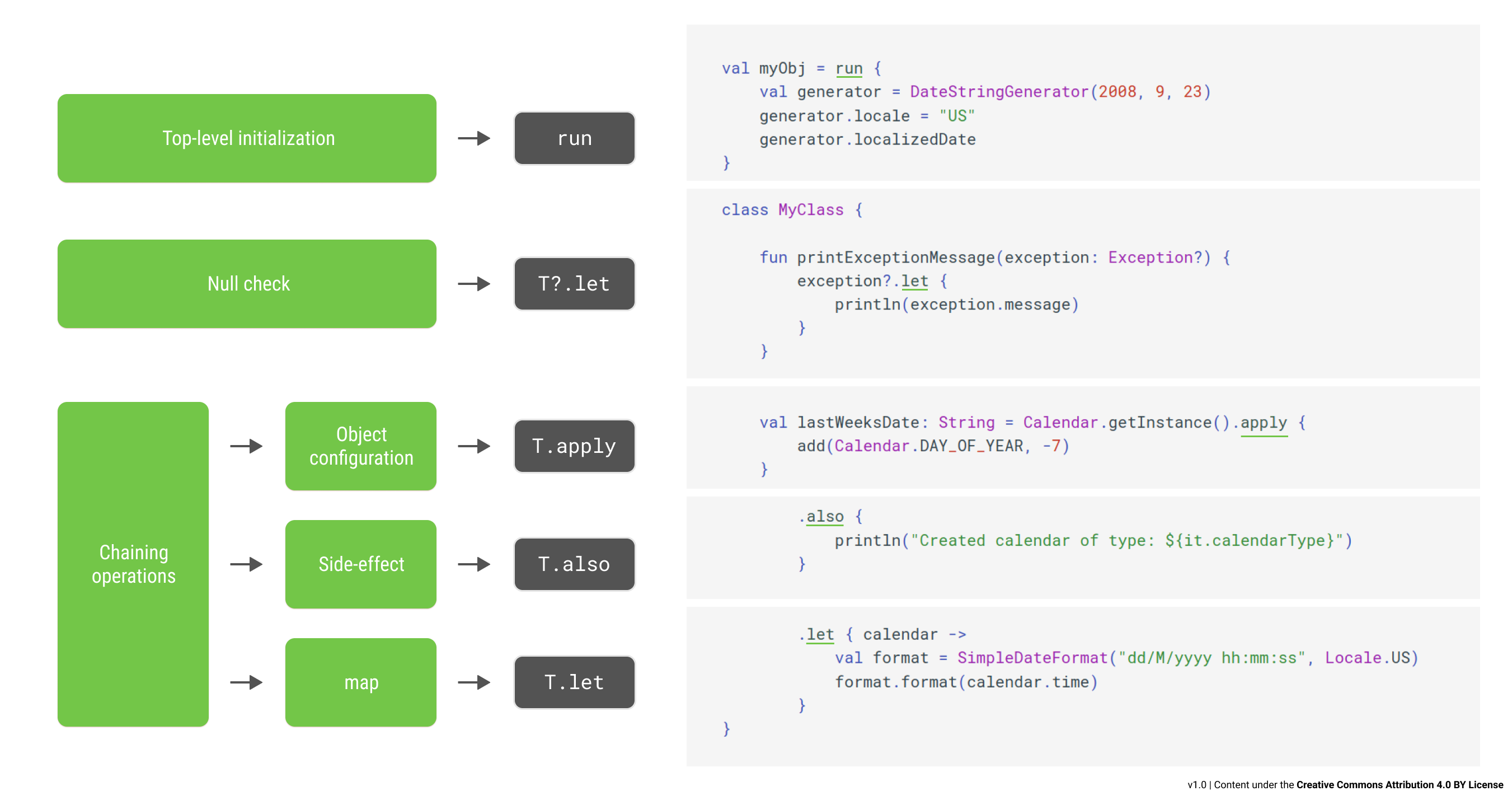


operator, kind of like how adding inc allows us to use the ++ operator. The rangeTo method will allow us to iterate over our range using the. In such way, you can replace the - with =>, which looks like scala.Since we’re defining our custom range, CustomColor class must implement the rangeTo method. In Kotlin, for loop is used to iterate through the following because all of them provides iterator. Common JVM JS Native 1. 1.8.10 Return this value if it's in the range, or range.start if this value is less than range.start, or range.endInclusive if this value is greater than range.endInclusive. If you're happy, you can rename the minus function to compareTo and return 0. Open in Playground Target: JVM Running on v. There are three ways for creating Range in Kotlin Using (.) operator Using rangeTo () function Using downTo () function (. Simply, a when statement in Kotlin looks at the 'case', and if it is a range, it sees if the variable is in that range, but if it isn't, it looks to see if the case is of the same type of the variable, and if it isn't, you get a syntax error. You will learn more about ranges in the next chapter - which will create a range of values. In Kotlin, the for loop is used to loop through arrays, ranges, and other things that contains a countable number of values. The start and stop are inclusive in the Range and the value of step is by default 1. Unlike Java and other programming languages, there is no traditional for loop in Kotlin. You can put the whole expression in the second part, which is OK but seems like unnecessary duplication. The range in Kotlin consists of a start, a stop, and the step.

The value which is equal or greater than start value and smaller or equal to end value comes inside the defined range. Range expressions are created with operator (.) which is complemented by in and in.

Similarly we can create character ranges such as ‘A’.’D’ which will create a series of values A, B, C, D. For example a range of 1.5 would create a series of values 1, 2, 3, 4, 5. I tried to find an unbounded range comparison, but couldn't make this work either? Is it possible to write this as an unbounded range? // trying to get an unbounded range - doesn't compile Kotlin Range CharRange LongRange IntRange IntRange 2. Kotlin range is defined as an interval from start value to the end value. With the help of ranges in Kotlin we can easily create a list of sequence by specifying starting and ending value. I'm trying to use the WHEN clause with a > or = >) in a comparison to enable this? val foo = 2


 0 kommentar(er)
0 kommentar(er)
